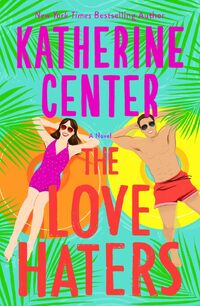 THE LOVE HATERS |
|
 A twisted tale featuring Harry Houdini and Sir Arthur Conan Doyle...
Leisure Horror It’s 1903 and Harry Houdini (the great escape artist) seeks the help of Arthur Conan Doyle (creator of Sherlock Holmes.) Houdini wants to discredit Maximillian Cairo—an infamous Occultist and the most debauched man in London. But the two men get more than they bargained for when they interrupt a magic ritual. That night they set something loose—something that no one can face and stay sane. Something that runs amok—spreading death and madness throughout an unsuspecting Edwardian London. Both men are tortured by self-doubt for the first time in their lives. Have their logical minds been tainted by this brush with frenzy? Moreover, Conan Doyle is increasingly drawn to Justine Luce, a young suffragette with startlingly progressive ideas. Houdini, too, finds himself tempted by desires he may not be able to resist. Their sole hope to understand what is happening to them lies with the only witness to the first murder. But the man refuses to reveal what he’s seen—even to save his life. All of Houdini’s street smarts and all of Conan Doyle’s powers of deduction combined may not be enough to prevent madness from overwhelming the world. Excerpt Prologue 1 November 1926 It is with a heavy heart that I take pen in hand to write these words. I have suppressed the facts of this matter for over twenty years, though they tell of perhaps the greatest adventure of my life--an adventure some will surely dismiss as mere fiction. I only wish it had been. Herein, at last, I shall set down my first encounter with those terrible powers that lurk beyond the borders of natural science. I was lucky to survive; others were not so fortunate. Only now is it safe to break my long silence, since I have just received news that one of the greatest showmen in the world and a dear friend of mine has passed on. I could not reveal the truth whilst he lived, because I feared it would damage his reputation and possibly curtail his livelihood. I refer, of course, to the great magician Houdini. Now he is past harm and in a place where all is peace and forgiveness. One way or another, I am sure we shall be in communication again soon. One of the deepest regrets of my life is that we had not spoken for nearly two years when he died.
Sir Arthur Conan Doyle Chapter I Mischief at the Palace I shall never forget the time I first laid eyes on Harry Houdini. I had no way of knowing this meeting was to change the course of my life. It was in the fall of 1903. The Great War and my great losses in it were still over a decade away. I had spent the better part of the season in constant attendance on my wife Louise during the final stages of her illness. We had a nurse, but for reasons of my own I insisted upon taking responsibility for her care. The slow, inexorable advance of the consumption that wasted her body had been excruciating to watch. Her life was not ending with dignity. Rather, it dragged on in whimpers of pain and the humiliations of the sick room. I could only hope that the clergy were right and a better world awaited those who were forced to suffer so in this one. Some days I would have given much for proof it was true. Unfortunately, I had given up all hopes that such proof would ever appear. With nothing to do but await the inevitable end, I felt like a trapped animal in my own house. I snapped at Nurse and was brusque even with my son Kingsley. He was eleven and already a forthright, manly lad. Now, however, I could scarcely brook the silent misery in his eyes. I had not set foot outside of the house for many weeks when I received a letter from my publisher. He needed to meet with me in London to finalize the details of an American lecture tour scheduled for the following year. The joy I felt at finding a reason to escape soon faded. It was replaced by guilt over my eagerness to abandon my dear invalid. I had drafted a refusal when my wife, in one of her rare lucid moments, insisted I go. "The change will do you good." She smiled weakly. "One of us needs to remain strong." Reluctantly, I agreed to a short trip and determined to take Kingsley along. He too needed a respite from the pall that hung over our home. London was a tonic for both of us. We had reached an unspoken agreement for one day to put aside the grief that had worn us down so. After finishing my business, I gave us both a treat. Houdini was performing in London. I had long been fascinated by the idea of a man who could escape anything. So I took my son to see him at the Palace Theatre. Once an opera house, of late the Palace had been given over to variety entertainments. As we left our hotel, we spied one of the brand-new motor taxis. "Oh, may we hire it, father? May we?" Kingsley jumped up and down in his excitement. I motioned the driver over and we climbed aboard. Once we were settled on the leather bench seat, the driver pulled into the stream of horse-drawn carriages, wagons, and cabs. I was surprised at how high off the ground we sat. We rode like a rajah on his elephant and surveyed the rush of traffic below us. Despite the vehicle's constant vibration, its instantaneous acceleration and quicksilver maneuverability fascinated me. Our driver dexterously wended his way between the less agile conveyances around us. Horses shied at our approach or showed their suspicion by pinning their ears back against their heads. "Get off the road with that thing," one driver called angrily to us. Pedestrians looked up in alarm or curiosity as we passed them. From our vantage point the crowd on either side of the roadway seemed like a swirling flock of raucous fowl. Stiff corsets forced the ladies' figures into swanlike S-curves. Broad-brimmed hats, mounded with feathers, enhanced the resemblance. The sober blacks of their escorts' dinner jackets and stiff shirt fronts rendered the women even more flamboyant by contrast. The chatter and laughter mingled with the clop of horses' hooves and the rumble of carriage wheels. "It's rather wonderful isn't it, father?" Kingsley confided. I nodded to him and resolved to own one of these machines soon. As we continued, our vehicle's gentle shuddering relaxed me. My mind began to drift. For the first time in many weeks, my thoughts wandered back to the days before my wife's illness. My youthful adventures as a young doctor aboard ships sailing to far-flung corners of the Empire seemed far behind me. I now devoted myself to my historical novels. I played cricket with James Barrie's team of writers, boxed, and golfed when time permitted. Still, something was missing from my life. It had been ten years since I'd published the Final Problem in the dear old Strand Magazine. The outrage and mourning following this "death" of my creation Sherlock Holmes had shocked me--and, I confess, given some gratification. Angry letters had flooded my publisher. Crowds of people wore black armbands for weeks. Only the death of Queen Victoria seven years later equaled the tumult. Now, save for the occasional appeal from Greenhough Smith, editor at the Strand, I thought that was all history. I was about to find out just how wrong I was. When we arrived at Cambridge Circus, its dozens electric street lights, newly installed, dazzled us. Blinking, we picked our way through the crowds that surged around us. "Keep hold of my hand," I warned Kingsley. He seemed happy to do as I bid. On the ground there was an absolute crush of couples in their finery. We pushed on through scents of lavender and tea rose. I felt a pang at the thought of enjoying myself whilst my poor Louise endured her final agonies. But the joy on Kingsley's face convinced me I was doing right. His eyes went wide at his first glimpse of the theatre. It was a magnificent structure in the Spanish style with rows of tall, arched windows and a spire at each domed corner. The more desirable seats were all sold out so we had to content ourselves with sixpence seats towards the rear. To compensate, I rented us each a pair of opera glasses for a close-up view of the show. As we started down the lushly carpeted stairway, I felt an elbow in the ribs. I turned to see a labourer in his coarse wools push past me with a grunt. He swaggered to his seat with his sweetheart in a shawl and clogs. A whiff of unwashed bodies and cheap perfume trailed in their wake. I hastened Kingsley past the copper-coloured marble pillars to our seats. From this vantage point I observed the people around us. Houdini evidently attracted an eclectic following. Well-to-do young wives in their pastel silks and satins jostled and were jostled by their poorer sisters in dark chintzes or lustrings. Gentlemen in silk hats threaded through knots of working men in cloth caps and open shirt-fronts. Once the show began, we endured the juggler, the strong man, the singers, and the tableau vivant while we awaited the main attraction. At last the great magician strode onto the stage in full evening dress. The applause rolled in waves across the vast auditorium. I examined him through my opera glasses. His face was broad, with a high forehead and a thatch of dark, unruly hair. A humorous mouth softened his expression somewhat, but the strong jaw, firm lips, and furrowed brow all bespoke determination. "Ladies and Gentlemen," he announced, as he took his place in front of the red velvet curtain, "tonight you will see things that defy explanation." He was as good as his word. He plunged into tricks with cards and coins. At one point he swallowed six needles and a length of thread. When he spat them back up, all six were threaded on the strand. He looked as delighted as a child after each successful sleight-of-hand. His enthusiasm was contagious. The crowd chuckled and enjoyed themselves fully. He began the second part of his act by stepping to the front of the stage and lifting his arms for quiet. Only when the crowd were absolutely silent, did he speak. "I will prove to you that nothing made by man can ever hold me." He proceeded to astonish us all with a series of escapes. In full view of the audience he struggled from the coils of a length of rope, using only his fingers, teeth and incredible flexibility. A representative of Scotland Yard locked him in a pair of handcuffs--the same ones that had restrained the bludgeoner Edgar Edwards on his way to the gallows. In moments they clattered to the floor. Houdini triumphantly flung up his bare wrists for all to see. Next, he was bound hand and foot, tied in a bag and deposited in a chained trunk. His assistant, a short woman in tan tights, stepped behind a curtain on stage. In the blink of an eye she vanished and Houdini stood in her stead. The trunk was unchained. When Houdini cut open the bag, his assistant's head of curly brown hair popped up through the slit. At last came the part I had awaited eagerly. Whilst his assistant rolled a curtained cabinet on from the wings, Houdini strutted to centre stage. He announced, "I will pay ten pounds to anyone who can shackle me so that I can not escape." The crowd waited in expectant silence. This challenge was his trademark. He offered it at every show. "Come on," the magician exhorted. "Anybody think he's up to it?" A burly man stood up in front of us. A pair of manacles dangled from each hand. "You won't get out o' these," he shouted. Houdini invited him up on stage with an enthusiastic gesture. Here is a confederate, planted in the audience, I thought. As the man made his way to the stage, I revised my opinion. He was an uncouth sort, obviously the worse for drink. I caught a glimpse of the manacles as he staggered down the aisle. They hung heavily in his hands and clanked ominously with each step. I speculated on where he might have got them. His peculiar, rolling gait was suggestive. With this fellow, Houdini might well have met his match. The man climbed onto the stage. "C'mere," he bellowed. The fellow grabbed one of the magician's hands roughly. Houdini, however, shook his head and said to the audience, "I will examine the apparatus first." The man growled something, but Houdini insisted. First he looked the manacles over. Then he shook each one in turn, listening carefully. "The locks have been fudged," he announced. "But with a little extra time I can do it." "Ain't nothing wrong with those locks," the surly giant beside him insisted. Houdini lifted one of the irons head-high and spoke quietly for several seconds. None of us could hear what he said, but the man's face grew red. Finally the magician closed his eyes, took a breath and proclaimed, "Houdini is ready." The man spun Houdini around, yanked his arms behind him and drove him to his knees. We all heard them thud loudly on boards of the stage. Several in the audience groaned in sympathy. "This is not a challenge to break my bones," the magician protested. I saw the ruffian grin as he manacled Houdini's hands behind him. He padlocked the magician's ankles together. Finally he scooped off the floor the handcuffs Houdini had recently escaped from, and bound the magician's wrists to his ankles. Thus effectively hog-tied with bonds of steel, Houdini could barely kneel upright. His assistant opened the door of the curtained cabinet and rolled it up to surround the bound man. Before she could close the door, the ruffian on stage pushed his way inside the cabinet. We heard a loud thud and one side of the enclosure bulged. The challenger stumbled out of the door and the cabinet rolled backwards. Houdini lay on his side, still fettered by the manacles. I examined him through my glasses. His face had grown flushed. The angle at which he had fallen and the constriction of his bonds evidently hampered his respiration. Obviously the hooligan beside him had knocked him over. Kingsley looked up, concerned. "Shouldn't someone help him, father?" he asked. "It's all part of the act," I reassured him, but privately I didn't like how shallow Houdini's breathing had become. The magician's assistant rushed over to help, but the challenger forestalled her. "This is a test, not a Banyan Party," he laughed. "Get on with it." He then placed himself between the magician and his assistant, who seemed little more than a girl. She flung up her arms as she expostulated with the lout on stage. When he merely laughed at her, she hurried into the wings. I sat forward on my seat. Would no one help the man? Mutterings of disapproval began to roll across the auditorium. I examined Houdini through my glasses once more. He gasped and perspired--the man was in real distress. But he struggled valiantly to right himself. Eventually he got himself up on one elbow when the challenger stepped in front of him. The ruffian bent down and whispered something to Houdini. The magician looked up, surprised. Then the cad once more kicked Houdini's arms out from under him. He hit the boards with a groan. Cries of "Foul!" and "Play fair!" vied with raucous laughs of approval from the lower sort in attendance. I could stand it no longer. I rose from my seat, dashed up the aisle and leaped upon the stage. I made for Houdini. The brute forestalled me, fists clenched. I had no desire to engage in a public brawl, but Houdini needed help, and quickly. Then a strategy presented itself. I turned towards the audience. "Ladies and Gentlemen," I began, "My name is Arthur Conan Doyle." The room fell silent. Houdini's assistant stood on the sidelines. She wore a worried look. "Prove it!" one man challenged. "Hush, let him speak," a woman called. I ignored these sallies and continued. "Since we are lucky enough to live in a free society, let's put this to a vote. Do we allow a ruffian to mistreat a guest in our country?" A rumble of discussion rolled across the audience. The first man bellowed again, "Why should we listen to you?" In the heat of the moment some people, I regret to say, echoed his sentiments with their jeers. Many in the audience looked uncertain. How could I verify my identity? I glanced down at Houdini. Perspiration dotted his face as he struggled to right himself. The large man on the stage approached until he loomed over me. "This here's none o' your bloody business." He swung a haymaker at my jaw, but I tucked my chin. His blow slipped off my hunched shoulder. I spun and used his own momentum to push him off balance. He staggered halfway across the stage. A gasp ran through the spectators. When the man regained his balance he shook his head, and stalked back over to me, murder in his eye. I had a burst of inspiration. I spoke loudly, so that everyone could hear. "Behave yourself, Mr. Wilcox. You're in enough trouble with the authorities." He stopped up short and his jaw dropped. "The Jaunty don't scare me none." He turned to the audience. "He's talking crazy." People shifted in their seats. Their mutterings sounded like low thunder. I saw more than one hostile glance directed towards me. "You have the walk of a seaman," I said loudly. "The anchor tattoo on your arm and your use of naval slang confirm my diagnosis. My nose tells me you have been to a public house for several drinks, but not to a hotel for a bath. You are recently off a ship or you would have freshened up and lost your shipboard-waddle. You have enough money to attend a show at the Palace and to buy a brand-new suit, but not the level of diction one usually associates with these acquisitions. Your accent betrays you as having been born in the Portsmouth area. "This morning," I addressed the audience, "the Times ran an appeal from the police for information of the whereabouts of a Robert Wilcox, from Portsmouth. He had been manacled in the brig of his ship, the Saxon Warrior, for stealing money from his mates' lockers. He somehow escaped and jumped ship. The SW stamped upon the manacles you used confirms my theory." "It ain't true," the lout beside me insisted. Chuckles and shouts of derision issued from the crowd. "It's bleeding Sherlock Holmes!" a large man down front ejaculated. I gave an inward sigh of relief. Fortunately, I could play at being Holmes when necessary. Still, there was an unruly element to contend with. "Conan Doyle," one person called, "When are you bringing Holmes back?" Calls of "What'd you kill him for?" and "Bring him back," drifted up through the lime lights. These scattered outbursts soon resolved themselves into one unified chant. "We want Holmes," they called over and over again. The sound rolled across the auditorium and echoed back at me from the walls. Many of the faces looked decidedly unhappy with me. Peering into the audience, I could barely make out Kingsley's small form, squirming uneasily in his seat. Some of the crowd left their seats and advanced on the stage. They looked angry. I glanced at Houdini behind me. His face had grown pale and his hands were slowly turning blue from the constriction of the manacles. I saw only one way out of this dilemma for both of us. I raised my hands. The crowd grew silent. "You shall be the first to know," I called. "I have begun the first of a series entitled The Return of Sherlock Holmes for publication in the Christmas issue of the Strand." For a moment all was silent, then there was such a wild cheering as I expected to hear only on Judgment Day. Men threw their hats in the air; ladies fanned their faces with handkerchiefs. I took advantage of the ease in tension to bend down and lift Houdini upright. He gave a sigh of relief and winked at me. I turned away from him to confront Mr. Wilcox, but the stage was empty except for Houdini's assistant. The man had made good his escape. I turned back to the crowd and was surprised to see cheering break out again. At first I thought they were applauding me for helping Houdini. Then I realized that all the men who waved wildly and the women who applauded were looking past me. I turned round to see Houdini standing triumphant behind me. He held aloft all three sets of manacles, still locked shut in his left hand. In the midst of the applause, he shook my hand vigorously and patted my back. "Sir Arthur Conan Doyle," he announced, urging the audience to an even greater ovation. "A true gentleman." Somewhat embarrassed, I retired to my seat. Kingsley's face was glowing. His eyes glistened and his lower lip trembled. "Well done, father," he said. I gave him a quick hug. The cheering continued long after Houdini had bowed and the curtain had fallen. Eventually the enthusiasm wore itself out and we made our slow way towards the exits. People kept stopping to shake my hand and express their admiration. At the door I returned our opera glasses to the vendor. As Kingsley and I turned to leave, I felt a hand on my arm. To my surprise it was Houdini's petite assistant who clutched at me. I noticed she a wedding band on her third finger. She also wore a small silver crucifix on a chain around her neck. "Please, sir," she said. "Harry would like to thank you." She led us behind the stage to the dressing rooms that ran along the left side of the building. Houdini occupied a large suite on the ground floor, as befitted the headliner. We found the master magician collapsed in a chair and applying salve to his raw wrists. As soon as he saw us he leaped to his feet and once more grabbed my hand in both of his. He had a firm grip, despite the ointment on his hands. "Great to meet you!" he exclaimed. I was startled to see how much shorter he was than my own six feet four inches. His head came to just my shoulders, yet he had absolutely dominated the stage. His smile suffused the man of mystery with a boyish charm. He turned to his wife, for so I surmised the woman beside us to be. "I'm sorry, Harry," she said contritely. "I tried to charm that guy, but I just couldn't get him to come into the wings." Houdini gave her a little hug. "You did your best," he said. Turning to me, he said proudly, "That's my Bess. She'd 'of fixed him good. Isn't she something?" Naturally, I assented, but he must have read puzzlement on my face for he looked back at his wife and said, "Show him how we handle weisenheimers," Bess Houdini blushed, looking even more like a little girl. "Go on," Houdini insisted, "show him." Shamefacedly, she reached around behind her and produced something small and dark--about the size of a child's sock. It was a leather-wrapped cosh; what, I believe, the Americans call a "blackjack." "Only because he kicked my Harry," she said in a small voice. The blackjack disappeared once again into the secret pocket behind her back. "What'd I tell ya?" Houdini crowed. "Quite a gal, huh?" "I had no idea life on the stage could be so rough," I said. Houdini shrugged. "That's show biz." I was struck by the difference between his language on stage and off. During a performance he spoke in a cultured, obviously trained voice. Offstage his vocabulary was casual in the extreme and he spoke English with the American nasality I have come to recognize with such affection. I also noted the shifted vowels of some regional accent. Clearly for the public arena he had worked hard to eradicate all traces of his origins. "Houdini thanks you," he said and yet again grasped my hand. "Sir Arthur Conan Doyle. You really saved my bacon!" He continued to pump my hand. I began to feel uncomfortable with his effusion. "That was great. For once, Houdini didn't mind being upstaged." Despite my embarrassment, I couldn't help noting his peculiar habit of referring to himself in the third person. Finally he released me. "How'd you ever figure out all that stuff about that guy on the stage?" I shrugged. "In my younger days I toured as a ship's doctor--once on a whaler, once to West Africa. When one has spent time around sailors, these things come naturally." "Naturally, huh?" He eyed me intently. "Not for everybody." He finally noticed Kingsley holding back in the doorway. "Is this is your boy? Come in, come in, sonny. Did you like the act?" "Ever so much, sir," Kingsley replied. "We've been to magic shows in Portsmouth, but they were nothing like this." The magician lifted his head high and tossed it, like a proud race horse. "Yeah," he agreed enthusiastically, "there's only one Houdini. Wanna see more?" "Oh, yes." Then Kingsley's eyes shifted to me. "That is, if it's quite convenient." Houdini threw his head back and laughed uproariously. "You have raised a little gentleman, Sir Arthur." I smiled down at him. "Please call me Conan Doyle--all my friends do." "We're going to be friends then?" he asked. "I should enjoy that." "Great, me too. Now, on with the show." He must have entertained us for a good half an hour with slights of hand and carnival tricks. But the highlight from Kingsley's point of view was when the master magician taught him how to eat fire. "Always hold your head back, like this," he instructed, dipping a lit match into his gaping mouth and retracting it. "See? The flame rises out of your mouth instead of burning it. Breathe out gently, keep the heat moving away from you. Then close your lips hard. That puts out the flame." Kingsley was thrilled and under Houdini's instruction soon became proficient. "Now you gotta let me take you to dinner," Houdini said. Kingsley's eyes positively glowed at the thought. But much as I hated to, I had to refuse. "Why?" The man looked heartbroken. "Have I bored you?" "Not at all," I hastened to assure him. "If anything, it is we who have overstayed our welcome. No, I must get back to my rooms tonight." "Why is that?" "Because I have promised several hundred people to resurrect that damned Holmes in time for the Christmas edition of the Strand and I need every second if I am to make their deadline." Houdini chuckled. "You may hate me, but millions will thank me this December, I bet." He shrugged. "Okay, I'll let you go. But you gotta come back tomorrow evening. We can make a night of it." "Well ..." I really did not want to impose. Besides, I'm not the sort who makes friends on the spur of the moment. Houdini eyed me speculatively. "I'll let you in on something. That sailor--somebody hired him to louse up my act." Here was a surprising development. Then I recalled that the man had whispered to Houdini just before he kicked his arms out from under him. "What did he say to you on stage?" "He told me, 'This'll teach you to interfere with Mr. Maximillian Cairo.'" Houdini bristled at the memory. "Well, well..." I said. These were deep waters, indeed. The name Cairo was infamous. It summoned up images of explorer, dabbler in the occult, and writer of notorious verse. "A friend of mine," Houdini went on, "has got herself mixed up with Cairo. I promised to help her out. If you got the stomach for it, I can promise you some excitement tomorrow." An idea occurred to him. "Maybe you'll get an idea for that story you gotta write." I did not like this turn of events. "Consider," I said, "how readily the thug revealed Cairo's involvement. Doesn't it seem as if Cairo might be deliberately baiting you?" Houdini shrugged. "So what? He'll get more than he bargained for, I bet." "Are you aware," I asked, "that he has been called the most debauched man in London?" Houdini shrugged. "It is considered risky to cross his path," I added. "I'm not worried," Houdini insisted. "All those fakers spread rumours like that." He craned his neck to look up at me. "Meet me here after my show tomorrow night, if you feel in the mood for an adventure." 
Our Past Week of Fresh Picks
There are no rules this cruel summer…“I think we should see other people…” That one sentence unravels Samantha Parker&rsquo Read More »
THE DEATH MASK From #1 New York Times bestselling author Iris Johansen comes a new thriller starring Eve Duncan as she races against time to protect her beloved Read More »
Set in the art world of 1970s London, The English Masterpiece is a fast-paced read to the end, full of glamour and Read More »
Detective Arkady Renko—“one of the most compelling figures in modern fiction” (USA TODAY)—returns in this tense thriller set amid Read More »
Eat Post Like is a heartwarming debut novel of self-discovery, resilience, and the transformative power of food.Cassie Brooks has her life all Read More »
In this million-copy international bestseller from Korea, the owner of a corner store takes in an unhoused man who does a good deed, a Read More »
From NYT bestselling author Rachel Gillig comes the next big romantasy sensation, a gothic, mist-cloaked tale of a young prophetess forced Read More »
It’s twice as hot in this extra steamy Christmas in July two-in-one cowritten by #1 New York Times bestselling Read More » |
|
| |||
|
||||

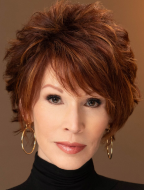


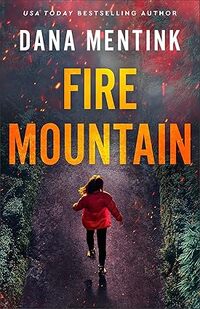

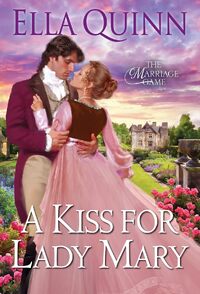
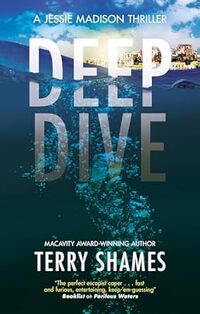
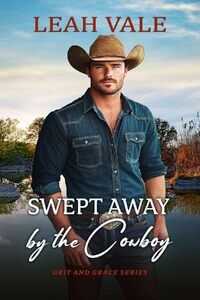
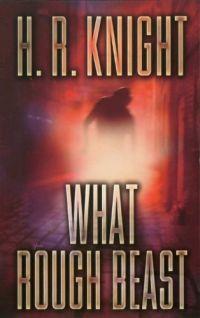
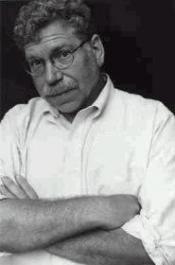

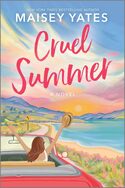
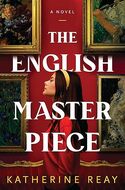
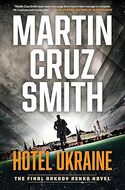

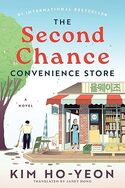
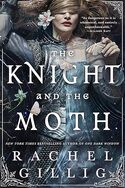
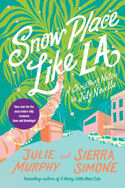
 © 2003-2025
© 2003-2025